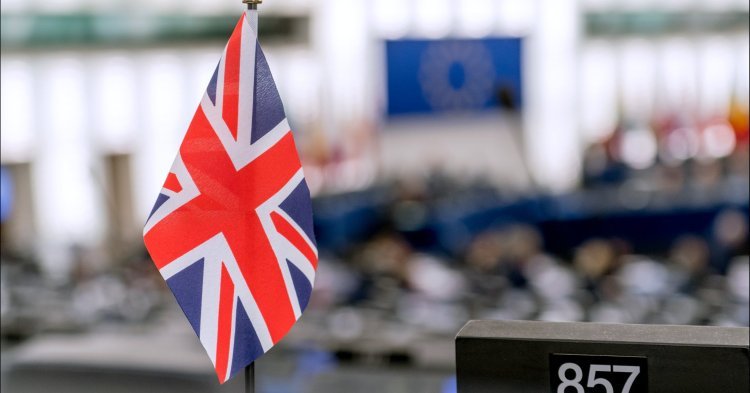What has followed since, for over three and a half years, has been nothing but Kübler-Ross’ five stages of grief: denial, anger, bargaining, depression and acceptance. Earlier this week, I was sent a picture of the EU flags manning the entrance to my secondary school. For the first time since the school’s founding, the Union Jack was gone. It was only then that it dawned on me that Brexit actually was around the corner. It was also then that I realized that, despite my sadness, I have reached the stage of acceptance.
Like many other Europeans (perhaps most famously, Donald Tusk), I feel a strong attachment to the United Kingdom, a country I have looked up to my whole life. I attended a British primary school, and was therefore brought up with its culture, singing its Christmas carols, reading its literature and enjoying its films. I have spent the past two and a half years as a student in this country, where I have been welcomed by a warm-hearted and kind people. There is a part of me which is inherently British – in the same way part of me is inherently Spanish, the country I was born in; inherently German, the country I was raised in; and inherently European, the continent I have always belonged to. Yet despite the parallelisms, I am among those who strongly criticized Frans Timmermans’ recent ‘love letter to Britain’, in which he claimed to find ’comfort’ in the thought that the ’family ties’ binding the EU and the UK could ’never really be severed’.
Unlike Mr Timmermans, I do not entertain the slightest doubt that the UK, as it currently stands and despite the impressive fight put on by our Remainer friends, has no interest in retaining close ties with Europe – at least, until it once again realizes the benefits it reaps from doing so. It is a country which has voted to sever ties with Erasmus+, the EU’s biggest success story, while reminding us of just how ‘committed’ it was to ‘continuing the academic relationship between the UK and the EU’. It is a country whose Chancellor Sajid Javid announced it would not seek regulatory alignment post-Brexit, only to u-turn after several days’ worth of backlash. It is a country which voted down an amendment giving EU citizens in the UK an automatic right to stay, rather than having to go through the cumbersome and degrading process that is applying for Settled Status.
It would be naïve to think that the European Union does not need reform. It would also be naïve to hold that it is anywhere near where it needs to be. Much of its future, of course, will depend on what comes out of the Conference on the Future of Europe: whether it is a mere façade, leading to superficial changes, or whether it really serves as a way of restoring faith in our common project, narrowing the democratic deficit and paving the way towards a true political Union. There are grounds to be pessimistic: the new Commission has hardly enthused the electorate and has largely been characterised by its flamboyant rhetoric, while its dependence on the Polish and Hungarian governments, for example, has raised questions about its stance on the Rule of law.
And yet the EU has secured 70 years of peace across the continent. It is the home of Erasmus+, which has allowed millions of young Europeans to study abroad, learn new languages and access new cultures. It allows 500 million citizens to live, work and travel in 28 countries. It has financed the development of poorer regions through its Cohesion Fund or its Solidarity Fund. It protects workers’ rights, human rights and the rule of law, and is a pioneer in the existential fight against climate change. More importantly, it is a social and cultural union: one which, rather than seeking division, aims to bring people closer together, ensuring they lead free and fulfilling lives and uniting them in their diversity.
Marcel Decombis, Jean Monnet’s chief of staff, once spoke of the European project as follows: “[w]ithout ceasing to look to their own lands with love and pride, [citizens] will become in mind Europeans, (…) ready to complete and consolidate the work of their fathers before them, to bring into being a united and thriving Europe.”
The UK has not left the EU because it believes in any of the above or because it considers itself to share a ’special relationship’ with the EU. Neither should we. It is trite to say that the UK was never a fan of integration: that De Gaulle might perhaps have been right in vetoing its accession; that successive prime ministers spent more time thinking about their opt-outs than about the future of the European project; and that even before the disastrous referendum, all Cameron seemed to care about was his membership renegotiation.
On the eve of Brexit, I seem to have come full circle in the Kübler-Ross model. The UK will be leaving the EU tomorrow. Part of me is sad, not only because of the role the country has played in my life, but because it is yet another triumph of chauvinism over tolerance; of imperial nostalgia over cosmopolitanism; and of half-truths over facts. Yet unlike Mr Timmermans, part of me is also relieved we have reached this stage. For the past three years, a vast amount of money, time and energy has been wasted trying to make sense of the country’s political decline, adapting to its different parliamentary majorities and negotiating a deal which would not see the UK have its cake and eat it. And in this, the EU has shown a remarkable unity, at a time in which its main democracies have been tested to their limits by the far right and by secessionism.
Brexit will always be a mistake, however much the Tories try to hide it behind calls for a new ‘golden age’, precisely because the EU is so much more than the sum of its parts or the size of its GDP. Yet who knows: perhaps it is the EU which will be able to benefit from this newfound freedom. In any case, as Vidal-Folch wrote for El País in his response to Mr Timmermans, let us not overplay our sentimentalism towards the UK: faced by any ‘backsliding or half measures’, or threatened with fiscal or environmental deregulation when negotiating a future agreement, it will be our job to stand up for our values. Just as they have stood up for theirs.


1. On 30 January 2020 at 23:44, by Reginald Bowler Replying to: Faced with Brexit, the EU must not overplay its sentimentalism
Replying to: Faced with Brexit, the EU must not overplay its sentimentalism
Íñiguez: “the UK, as it currently stands ... has no interest in retaining close ties with Europe – at least, until it once again realizes the benefits it reaps from doing so”
The UK has had nothing at all worthwhile from being in the eu that it could not otherwise have had from elsewhere.
Sad but true.
Follow the comments: |
|
